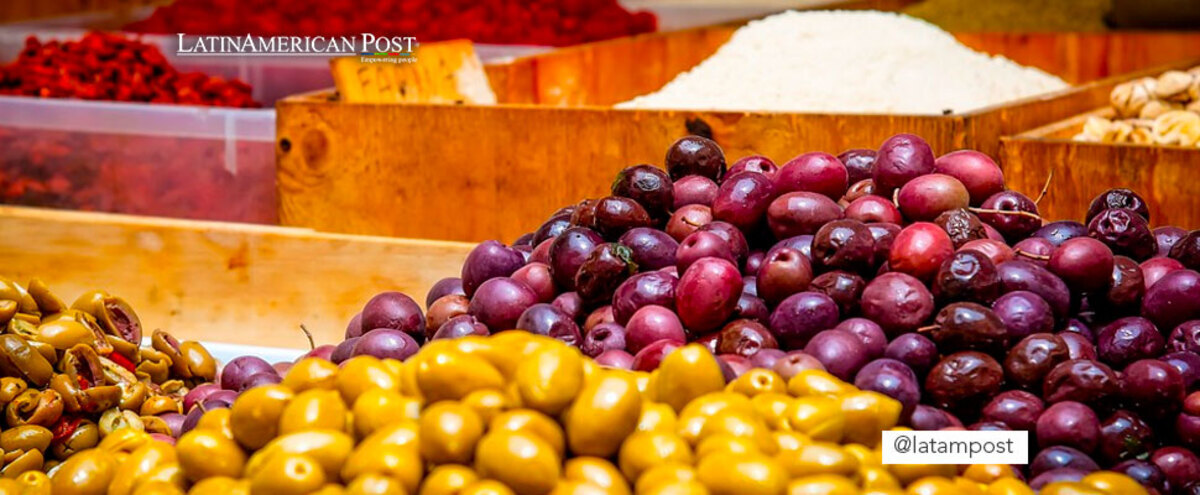Olives, Solar Kerosene and Eucalyptus: The New Fuels for the Aviation Industry
The Aviation Industry is Developing Alternative Fuels, From Rare Elements, to Reduce its Carbon Footprint. We tell you About some Innovative Options that Would Allow this Industry to be Transformed..

Photo: Pixabay
LatinAmerican Post | Julián Andrés Pastrana Cuéllar
Listen to this article
Leer en español: Aceitunas, queroseno solar y eucalipto: los nuevos combustibles de la industria de la aviación
As strange as it sounds, elements as curious as cooking oil, solar kerosene, eucalyptus and even olive pits could be the inputs that pave the way for the development of fuels for the aeronautical industry that are much more environmentally friendly. Something key, if we consider that the aviation sector is one of the most polluting.
It is well known that the aeronautical industry is characterized by a great dependence on fossil fuels, a fact that makes it one of the most polluting. In this regard, it is estimated that this sector generates more than 900 million tons of CO₂, which represents 2.5% of global greenhouse gas emissions. To counteract this phenomenon, more environmentally friendly aircraft fuel options have recently been developed.
Planes that move with olive pits
Although it sounds crazy, the possibility of using a biofuel that works from olive pits is already being considered to move planes from the airport of Seville, Spain. According to the Antena3 portal, it is a pilot project that is planned to be carried out in the next 30 years and that takes advantage of the fact that the airport in question is located in a region known for the massive production of olives and olive oil.
We invite you to read: Conservation of Species, Is it Good to Move Them to Another Environment to Save Them?
It is estimated that this new green fuel could be used in any aircraft without the need to make adjustments to its engines and supply systems, making it a very accessible alternative. In addition, this product would be enough for a medium Airbus to travel up to 400,000 kilometers, something like making more than 150 flights from Seville to London.
The use of this biofuel would reduce CO₂ emissions by 90%, that is, a figure close to 200 tons of this polluting gas.
Solar kerosene, another environmentally friendly option
At the Polytechnic School of Zurich -ETHZ- a revolutionary project is being developed: to use sunlight and ambient air as inputs to manufacture fuels. To achieve this result, the following process is used: water and CO₂ are directly extracted from the ambient air and exposed to solar energy to, on the one hand, separate their parts and, on the other, manufacture synthesis gas that is a mixture of hydrogen and carbon monoxide. These substances will later be converted into kerosene, methanol or other hydrocarbons.
One advantage of this type of fuel is that, unlike biofuels, it does not demand agricultural land, but instead can be produced in desert areas where the solar resource is abundant. In this way, the demand for jet fuels could be met, occupying only 1% of arid land. Also, according to the researchers who have carried out the project, in an article published in the Nature Magazine, "it can be expected that the deployment of solar fuels at scale will result in notable cost reductions":
Taking to the skies thanks to eucalyptus and used cooking oil
The use of biofuels in the aeronautical industry faced a major obstacle in the past: first-generation biofuels -those obtained from the fermentation of plants to generate ethanol- were not compatible with current aircraft engines, according to the portal Hispaviation. However, today there are biofuels known as SAF (Sustainable Aviation Fuel) specially designed for aircraft and which pursue the objective of reducing greenhouse gas emissions by 50 to 60%.
SAFs are made from renewable raw materials such as used cooking oil and promise to spark a revolution towards a sustainable and decarbonised aviation industry. In fact, the Airbus company is investigating the possibility of producing biofuels from a type of eucalyptus called mallee. The idea is that, through a pyrolysis process, it is possible to transform this plant into a fuel that meets the needs of modern aviation.
This new class of fuels not only reduces the emission of CO₂, but also that carbon dioxide that it expels is absorbed by the different plant species, unlike the CO₂ produced by fossil fuels that remains trapped in the atmosphere, triggering phenomena such as global warming global.
All of these are alternatives that in the medium term could mitigate the enormous environmental impact of the aircraft industry, which, of course, affects us in our daily lives. In this field, Latin America has great opportunities, since biofuels are already being developed in various countries. One of the most recent advances was given by Panama, the government announced that in an alliance of several companies, Panama Oil Terminals (POTSA) and the government itself, they would start a project that aims to manufacture SAF fuels on an industrial scale by 2024. In fact, they hope to have the world's largest refinery of this type of fuel for the aviation industry.




